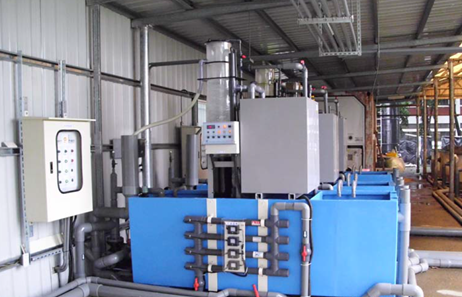The benefits of salt against fish parasites

Specialists from the department of veterinary medicine and risk analysis of food production of the Rostov Reference Center of Rosselkhoznadzor spoke about the effectiveness of using salt in aquaculture farms: Salt helps eliminate or significantly reduce parasite numbers, stabilize osmoregulation, reduce stress levels in fish, increase mucus production, and treat skin injuries.
“When used in certain concentrations, table salt effectively controls the number of parasitic ciliates on the gills and body surface of fish. Table salt baths are an effective means of destroying pathogenic fish ciliates: apiosis, chilodonella, trichodin, ichthyophthirius, bones. Salt is also effective against branchiomycosis and saprolegniosis,” said veterinary experts.
Experts added that salt baths can be used when treating fish with gyrodactylosis, dactylogyrosis, diplozoonosis, tetraonchiosis, argulosis and lerneosis to reduce the number of these parasites to an epizootically safe level.
“To combat ciliates, monogeneas, crustaceans and other ectoparasites, short-term salt baths are used when transplanting and transporting fish or directly in fish tanks and small ponds,” veterinarians explained.
To prevent ectoparasitosis in young fish, they recommend treating them in antiparasitic baths before planting them in wintering ponds, followed by washing them in running water. “ Common salt along with baking soda, potassium permanganate and bleach is included in the combined baths used for antiparasitic treatments when transporting fish from nursery to wintering ponds and when stocking feeding ponds with fish,” the experts specified.
According to them, treating fish with table salt is also effective for the prevention of diseases in closed water supply (RAS) installations, since salt does not have a negative effect on the biofilter, unlike antibiotics and other drugs. Experts note that table salt is also an effective means of relieving stress when growing, transporting fish or vaccinating. A solution of table salt is useful for breaking the mucous membranes and injuring the skin of fish. For preventive treatment of fish in small wintering ponds against protozoa, veterinarians advise using long-term salt baths. “For salt baths, it is better to use coarsely ground edible rock salt without any additives, including iodine, experts explained.
Above article are excerpt from
Author: Yulia Makeeva/vetandlife (translated from original in russian)
We hope you like this information. Pioneer group is always your best partner offering the high-quality aquaculture equipment & accumulated consulting experiences in aquaculture.
Kindly feel free to contact us by sales@pioneer-tw.com or phone call for more information or assistance.